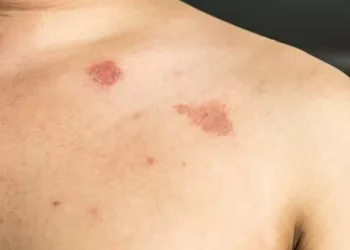Ringworm is a common fungal infection that affects the skin, scalp, and nails. One of the most important factors in understanding this condition is its incubation period – the time between exposure to the fungus and the appearance of symptoms. Knowing how long ringworm incubates can help with early detection, prevention, and treatment, reducing the risk of spreading the infection.
What Is the Incubation Period of Ringworm?
The incubation period of ringworm typically ranges from 4 to 14 days after exposure to the fungal spores. During this period, the fungus starts to colonize the skin but does not yet cause visible symptoms. The exact duration depends on several factors, including the individual’s immune response, the type of fungus involved, and the site of infection.
Factors Influencing Ringworm Incubation Duration
1. Type of Fungal Species
Ringworm is caused by dermatophytes, a group of fungi including Trichophyton, Microsporum, and Epidermophyton. Some species may incubate faster or slower than others. For example, Microsporum canis, often transmitted from pets, may show symptoms a bit earlier than others.
2. Site of Infection
The location on the body also affects incubation. Scalp infections (tinea capitis) may incubate longer due to hair follicles’ involvement, while skin infections (tinea corporis) might become apparent sooner.
3. Immune System and Skin Condition
A strong immune system can slow fungal growth, prolonging incubation. Conversely, damaged or moist skin can encourage faster fungal proliferation.
Understanding Ringworm Symptoms
After the incubation period, ringworm symptoms usually begin to appear. It’s essential to recognize these early signs for timely treatment. Common ringworm symptoms include:
- Red, itchy, scaly patches forming a ring-like shape
- Raised edges with central clearing
- Blistering or oozing in severe cases
- Hair loss when the scalp is affected
How Ringworm Is Transmitted
Ringworm spreads through direct skin-to-skin contact or indirectly via contaminated objects like towels, clothing, and surfaces. Knowing how long ringworm incubates helps in identifying the window during which exposed individuals might develop symptoms and become contagious.
Stages of Ringworm Infection
The infection process can be divided into four stages:
Incubation Stage: Fungal spores colonize the skin, no visible signs.
Early Stage: Redness and mild itching appear.
Active Stage: The characteristic ring-shaped rash develops with scaling.
Healing Stage: The rash fades with proper treatment, leaving little to no scarring.
Ringworm Causes and Risk Factors
Understanding ringworm causes is critical for prevention. The infection is caused by dermatophyte fungi thriving in warm, moist environments. Common causes and risk factors include:
- Direct contact with infected individuals or animals
- Sharing personal items like combs, clothes, or towels
- Excessive sweating or wearing tight clothing
- Living in humid climates
- Compromised immune system or existing skin conditions
How Long Does Ringworm Stay Contagious?
Ringworm remains contagious from the moment the fungus starts multiplying on the skin, often coinciding with the end of the incubation period when symptoms appear. Without treatment, the infection can remain contagious for weeks or months. Starting treatment early reduces contagiousness and speeds recovery.
Diagnostic Methods
Accurate diagnosis is important since other skin conditions can mimic ringworm. Doctors may use:
- Physical examination of the lesions
- Skin scraping for microscopic examination
- Fungal culture tests
Treatment Options for Ringworm
Once ringworm is diagnosed, treatment usually involves topical antifungal medications applied for 2 to 4 weeks. In more severe cases, oral antifungals might be necessary. Effective ringworm treatments include:
- Topical antifungals such as clotrimazole, terbinafine, or miconazole
- Oral antifungals like griseofulvin or terbinafine for extensive infections
- Maintaining hygiene and keeping affected areas dry
- Avoiding sharing personal items
Preventing Ringworm Infection
Since the incubation period means you can be infected before symptoms appear, prevention is key. Measures include:
- Keeping skin clean and dry
- Avoiding direct contact with infected persons or animals
- Not sharing personal items
- Wearing breathable clothing in hot weather
- Disinfecting surfaces and objects that may harbor fungi
Complications of Untreated Ringworm
Ignoring ringworm can lead to:
- Spread of infection to other body parts or individuals
- Secondary bacterial infections
- Permanent scarring or hair loss in severe scalp infections
- Chronic skin problems
Summary
The incubation period of ringworm generally lasts between 4 to 14 days, during which the fungus silently grows before symptoms appear. Awareness of this timeframe aids in early detection, proper treatment, and preventing spread. By recognizing the ringworm symptoms, understanding its causes, and using appropriate treatments, individuals can effectively manage and prevent this common fungal infection.
Related Topics



















![How to Treat Scrotum Eczema [All You Should Know]](https://www.skinhealthhubs.com/wp-content/uploads/2025/05/How-to-Treat-Scrotum-Eczema-120x86.webp)







